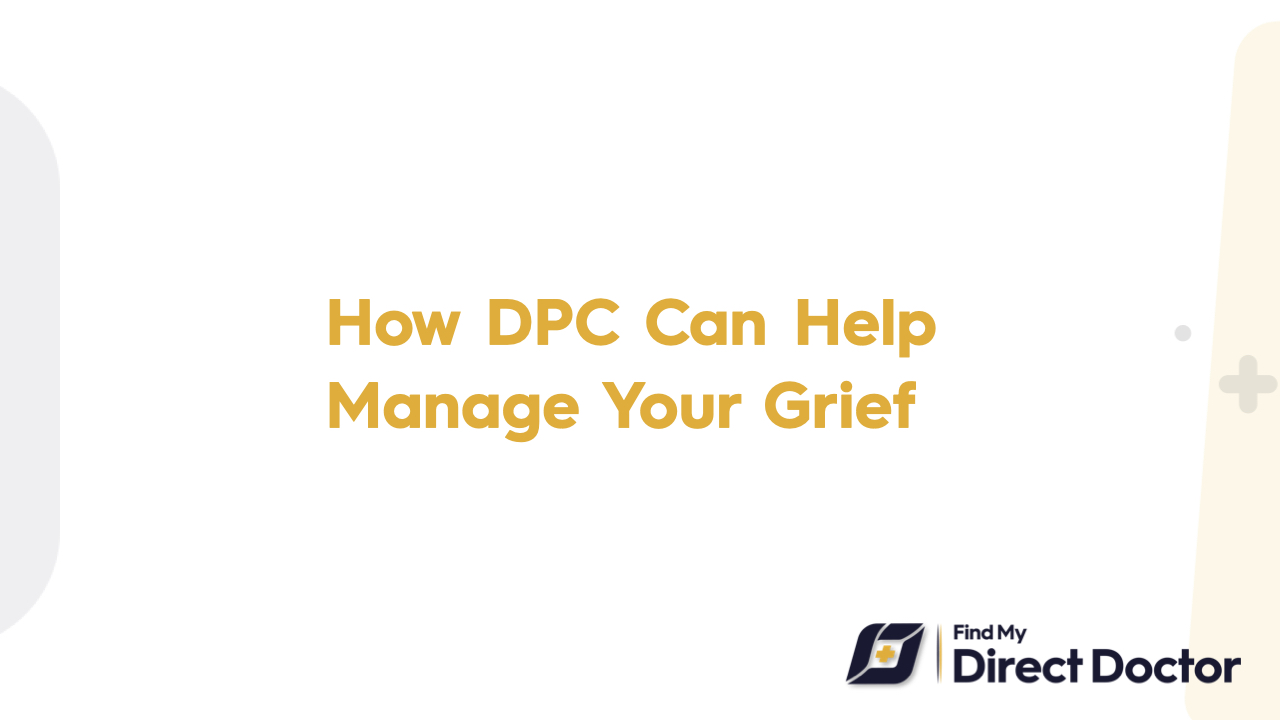



Grief is a normal reaction to loss and is frequently linked to the passing of a loved one, but it can also be brought on by divorce, losing one's work, or going through significant life changes. It is an intensely emotional and intimate event that has varying effects on people. A variety of emotions are included in grief, such as sadness, rage, bewilderment, and even physical discomfort.

Grief symptoms can take many different forms. Emotional symptoms can include intense sadness, guilt, or worry. Physical symptoms may include difficulty sleeping, changes in appetite, or exhaustion. Cognitive difficulties, like trouble focusing or making choices, are also prevalent. The level of grief can change over time, and it is not a linear process.
For those who are grieving, Direct Primary Care (DPC) offers a caring and sympathetic environment. DPC providers frequently take the time to listen, comprehend your experiences, and provide a thorough assessment of your physical and emotional health. Your care will be customized to meet your unique needs thanks to our individualized approach.
Regular check-ins with a healthcare practitioner are crucial because grief can negatively impact your general health. Frequent and easily accessible consultations are made possible by DPC, which can assist you in managing problems such as sleep difficulties or weariness. DPC providers can also help you find therapy choices or mental health services to supplement your care.
The intimate and continuous relationship you can establish with your provider is one of the main advantages of DPC. Throughout your grieving process, you will feel listened to and supported because of this relationship built on trust. Additionally, DPC's continuity of care aids in tracking your development and modifying therapies as necessary.
Because DPC places a strong emphasis on accessibility, you can get in touch with your provider at the most inconvenient time. Your provider's availability can be crucial during emotionally taxing periods, regardless of whether you need instant support, advice, or have questions. A sense of stability is fostered by this regular attention, which is crucial when dealing with bereavement.
Everybody experiences grief differently, therefore a tailored approach is essential. DPC providers put a lot of effort into learning about your particular circumstances and creating a care plan that takes into account your physical and mental well-being. This could involve methods for treating associated physical problems, managing stress, or enhancing sleep.
A common component of DPC's individualized grief management is mental health support. To assist you in processing your feelings and determining your next course of action, your healthcare professional may suggest mindfulness exercises, counseling, or relaxation methods. DPC gives you the tools to heal at your own speed while getting the support and understanding you require by integrating physical and emotional care.
Next Post